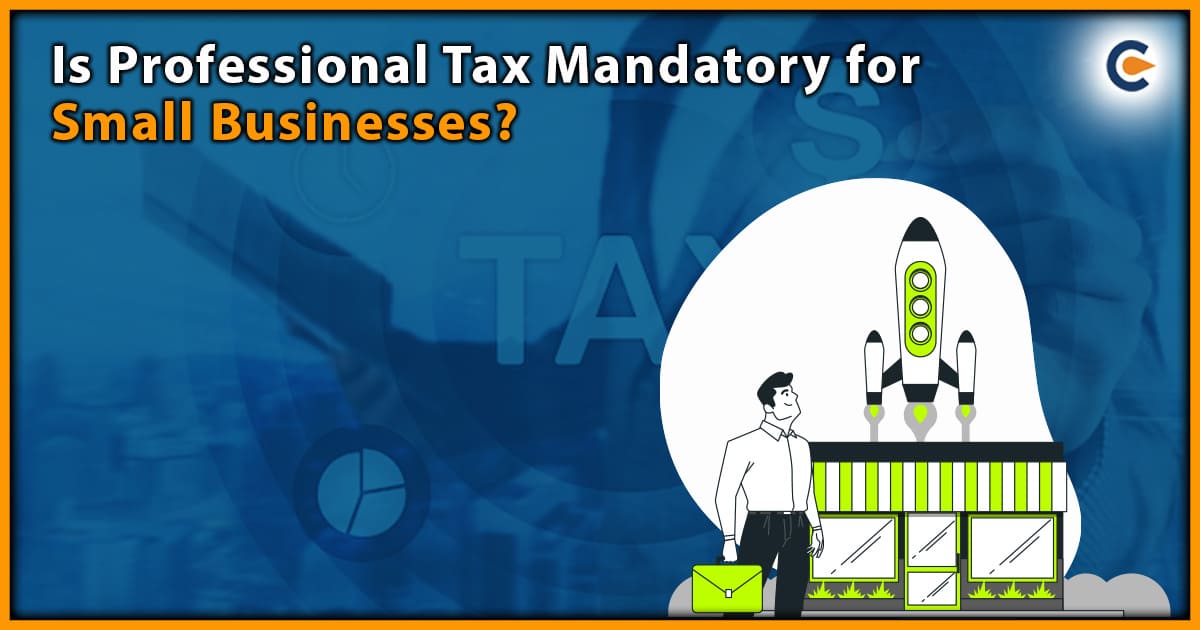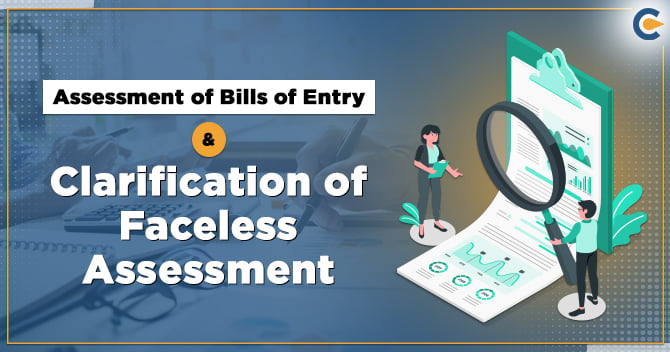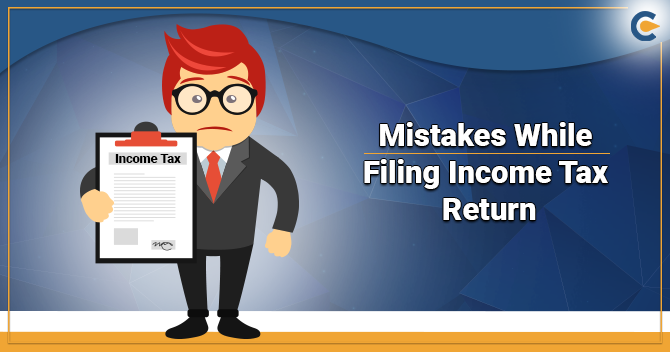Small businesses form the main component of the Indian economy, giving employment to millions of people and contributing significantly to the country’s GDP. These businesses face numerous challenges, one of which is ensuring tax compliance. The importance of professional tax for small businesses is to know what it is and why it is mandatory. This research essay will discuss the definition of professional tax, its purpose, and why it is mandatory for small businesses in India. It will also touch upon the consequences of non-compliance and the obligations of professionals who are liable to pay professional tax.
What is Professional Tax?
It is a form of taxation imposed on individuals in professions such as medicine, law, architecture, accounting, engineering, and auditing. It is aimed at providing financial services to individuals who require these services. The tax is levied per the Income Tax Act 1961 and is calculated based on the individual’s income. The purpose of the this tax is to provide funding for essential public goods and services such as infrastructure, education, healthcare, and defence. The tax is an essential source of revenue for the government, and it ensures that individuals engaged in these professions contribute their fair share to the public sector.
Why is it Mandatory for Small Businesses?
Tax compliance is essential to business operations, especially for small businesses. Failure to fulfil tax laws can result in severe consequences, including penalties, fines, interest charges, and even criminal charges. Small businesses often need more resources and expertise to navigate complex tax laws and are more susceptible to non-compliance due to limited resources. In addition, professional tax compliance is essential to maintain a fine and level playing field, with every small business contributing its fair share to the state’s coffers.
The professional tax is an essential source of revenue for the government, and it ensures that small businesses, which often have very limited access to resources, can continue to operate without the risk of facing legal action for failing to comply with tax laws. Small businesses that fail to comply with tax laws can also face significant reputational damage and a loss of reliability in the eyes of clients and customers. Additionally, fines, penalties, and even criminal charges can be expensive and significantly impact the business’s ability to operate. These consequences can be devastating for small businesses, which may need more resources to absorb the financial impact of non-compliance.
Consequences of Non-Compliance
Non-compliance with professional tax compliance can result in severe consequences for small businesses. The Central Board of Direct Taxes [CBDT] & the Central Board of Indirect Taxes & Customs [CBIC] have introduced strict regulations to ensure compliance with tax laws. Failure to comply with professional tax can outcome in a fine of up to 10% of the taxable income, interest, and criminal charges. The fines and interest charges can be especially burdensome for small businesses, which may need more resources to absorb these costs.
Additionally, failure to comply with tax laws can result in severe reputational damage, with small businesses losing credibility in the eyes of clients and customers. It can guide to a loss of business, as customers may prefer to do business with compliant businesses rather than ones known to be non-compliant. It can be especially destructive for small businesses, which often derive a significant portion of their revenue from repeat customers and loyal customers.
Obligations of Professionals
Those in medicine, law, architecture, accounting, engineering, and auditing must pay a professional tax per the Income Tax Act 1961. Professionals need to ensure that they comply with their professional tax obligations. Professionals must maintain accurate and up-to-date records of their income and expenses and t file their tax returns on time. Failure to comply with these obligations can guide in severe consequences, including fines, penalties, and criminal charges.
What are the Legal Provisions for Professional Tax Mandatory for Small Businesses and its Non-Compliance in India?
In India, professional tax is mandatory for small businesses. The Income Tax Act, 1961 (as amended from time to time) and the Central Board of Direct Taxes (CBDI) and the Central Board of Indirect Taxes and Customs (CBIC) have imposed strict regulations to ensure compliance with tax laws.
The Legal Provisions For Professional Tax In India Are As Follows:
- The Income Tax Act, 1961: The Income Tax Act, 1961, is the primary legislation that rules the taxation of individuals engaged in professions such as medicine, law, architecture, accounting, engineering, and auditing. It lays down the framework for imposing a professional tax on such individuals.
- The Central Board of Direct Taxes (CBDI): The CBDI ensures compliance with professional tax obligations. It has issued circulars, guidelines, and notifications to facilitate compliance with professional tax laws.
- The Central Board of Indirect Taxes & Customs [CBIC]: The CBIC is responsible for enforcing the provisions of the Value Added Tax (VAT) Act, 2003, and the Goods and Services Tax (GST) Act, 2017. It also assists the CBDI in monitoring compliance with professional tax laws.
- The Professional Tax Act 1975 (PT Act 1975): The PT Act 1975 is the primary legislation that governs the imposition of professional tax on individuals engaged in professions such as medicine, law, architecture, accounting, engineering, and auditing. The act was introduced in 1975 to ensure that individuals engaged in these professions contribute their fair share to the public sector.
Failure to comply with professional tax laws can result in severe consequences, including fines, penalties, interest charges, and even criminal charges. The legal provisions for non-compliance with professional tax are as follows:
- Section 275C of the Income Tax Act, 1961: Section 275C of the Income Tax Act, 1961, mandates that every individual engaged in a profession such as medicine, law, architecture, accounting, engineering, and auditing must pay professional tax. Failure to satisfy this section can outcome in a fine of up to 10% of the taxable income.
- Section 275C(A) of the Income Tax Act, 1961: Section 275C(A) of the Income Tax Act, 1961, provides for the imposition of interest charges on taxpayers who fail to satisfy their professional tax obligations. The interest rate is fixed at 12% per annum, and the delay in paying the tax determines the amount of interest charged.
- Section 275C(B) of the Income Tax Act, 1961: Section 275C(B) of the Income Tax Act, 1961, provides for a penalty of up to 10% of the taxable income where taxpayers fail to file their tax returns at the proper time.
- Section 275D of the Income Tax Act, 1961: Section 275D of the Income Tax Act, 1961, provides for the criminal prosecution of taxpayers who fail to pay their professional tax or file their tax returns on time. The taxpayer can be sentenced to imprisonment for up to seven years.
Small businesses need to take professional tax compliance seriously, as the after-effects of non-compliance can be severe. Failure to comply with professional tax laws can express in significant financial penalties, interest charges, and even criminal charges, which can significantly impact the business’s operations. Small businesses must seek the help of a professional consultant or accountant who can provide guidance and support in navigating complex tax laws.
What are the Landmark Case Laws Related to Professional Tax Mandatory for Small Businesses and its Non-compliance in India?
The following are landmark case laws related to Professional Tax Mandatory for Small Businesses and its non-compliance in India:
- Professional Tax Case: On 24 March 1977, the Supreme Court of India, in the Professional Tax Case, held that the provisions of the Income Tax Act, 1961, which impose a tax on the gross receipts of persons engaged in certain professions, did not violate the fundamental rights and liberties guaranteed under the Indian Constitution.
- The Satya Prakash vs State of Maharashtra: On 2 July 1996, the Supreme Court of India, in the Satya Prakash vs State of Maharashtra case, held that Section 275C of the Income Tax Act, 1961, which provides for the obligation of taxpayers to disclose their actual income, does not violate the right to privacy under Article 21 of the Indian Constitution.
- The Ram Lal Ananda vs State of Gujarat case: On 7 March 2003, the Supreme Court of India, in the Ram Lal Ananda vs State of Gujarat case, held that Section 206 of the Income Tax Act, 1961, which gives for the imposition of penalty for non-disclosure of income, does not violate the fundamental right to equality under Article 14 of the Indian Constitution.
- The State of Rajasthan vs Om Prakash Sharma: On 9 September 2005, the Supreme Court of India in the State of Rajasthan vs Om Prakash Sharma case held that Section 275C-B of the Income Tax Act, 1961, which gives for the penalty for delay in filing of return of income, does not violate the fundamental right to equality under Article 14 of the Indian Constitution.
- R. Antulay vs Union of India: On 2 September 2010, the Supreme Court of India, in the A. R. Antulay vs Union of India case, held that Section 143(2) of the Income Tax Act, 1961, which gives for the imposition of penalty for failure to take off tax at source, does not violate the fundamental right to equality under Article 14 of the Indian Constitution.
These landmark case laws have established the constitutionality of the Income Tax Act, 1961 provisions, which impose a tax on individuals engaged in certain professions and have also affirmed the powers of the authorities to take action against non-compliance with professional tax obligations. These case laws are significant in establishing the legal framework for professional tax compliance in India and guide small businesses to ensure their compliance with professional tax laws.
Conclusion
In conclusion, it is an essential aspect of business taxation compliance for small businesses in India, and small businesses need to seek the help of a professional who can provide guidance and support in navigating complex tax laws. Professionals must ensure that they comply with their professional tax obligations, which can be facilitated with the help of a professional tax consultant or accountant. Non-compliance can result in severe consequences, and it is essential to ensure that businesses fully comply with their professional tax obligations.
Read Our Article: Professional Tax Registration: Rate Slabs











